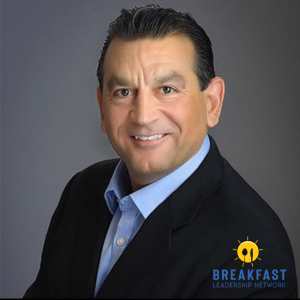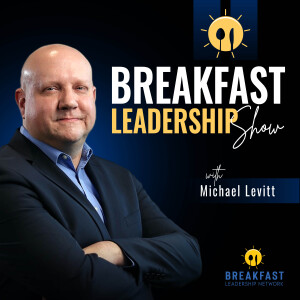
Thoughtful Thursdays: Unlocking Human-Centered Connected Worker Ecosystems: A Conversation with International Consultant and Keynote Speaker Brent Kedzierski
 2024-06-27
2024-06-27
Brent is a sought-after keynote speaker and a leader of connected-worker ecosystems at Hexagon ($HXGBY), an international data company working in many industries — from oil and gas to AI and manufacturing — to improve the human condition at work, amplify skills, and create a seamless collaboration between humans and machines.
His work at Hexagon involves digitizing and connecting data autonomously and holistically so that futuristic work environments, which are fast approaching, will be human-centered. He wants to give people the time, resources, tools, and skills to do their job.
Brent was involved in human performance trends in significant government and commercial industries, including the Department of Defense, executive and judicial branches of the US Government, aviation, healthcare, and nuclear industries.
With 35+ years of experience in human performance (including 25 years at Shell as Head of Learning Strategy & Innovation), he has been featured and cited in prominent publications, including Harvard Business Press, Workforce.com, and BBC News. In this article, he explores reclaiming human-centricity amidst a messy digital transformation.
On your podcast, Brent would be excited to discuss:
- The Growing Disconnect: The reasons behind the growing disconnect in the anatomy of work, leading to increased worker frustration, disengagement, and disenchantment.
- Enabling Human Centricity: The importance of considering the human experience cycle and human design principles in the design and execution of human-centered connected worker ecosystems across various industries.
- Humans and the Future of Work: Why human-centric connectivity is more relevant than ever in a dynamic modern workplace where automation and AI are accelerating and have the potential to outpace humans if not harmonized.
To get a feel for Brent, check out his appearance on the most listened-to episode of Courage of a Leader, where he talks about insightful strategies for leading significant, complex movements.
Also, here’s a webinar he did for Oil & Gas IQ about driving operational excellence through a connected worker strategy, which was the editor’s top pick for 2021.
Bio:
Brent Kedzierski is an award-winning thought leader and innovator in Human Performance, Human-Centered Connected Worker Ecosystems, and the future of Industry. Throughout his career, he has consistently delivered groundbreaking insights and transformative contributions. Brent's expertise has earned recognition from respected publications like Harvard Business Press, Chief Learning Officer Magazine, Workforce.com, BBC News, and more. His webinars have been featured as "editor's picks of the year," his podcast appearances consistently rank as "top-listened to" in the industry. Before becoming the principal industrial Strategist at Hexagon ($HXGBY), Brent spent nearly 25 years as Shell's veteran Global HR transformation strategist. Brent passionately advocates advancing progressive ideas and creating a more human-centered approach to industry, human development, well-being, and sustainability.
https://twitter.com/humanwrks?lang=en
https://www.linkedin.com/in/brentkedzierski/
More Episodes
 2022-03-30
2022-03-30
 2022-03-28
2022-03-28
 2022-03-23
2022-03-23
 2022-03-21
2022-03-21
 2022-03-16
2022-03-16
 2022-03-14
2022-03-14
 2022-03-11
2022-03-11
 2022-03-09
2022-03-09
 2022-03-07
2022-03-07
 2022-03-02
2022-03-02
 2022-02-28
2022-02-28
 2022-02-23
2022-02-23
 2022-02-21
2022-02-21
 2022-02-14
2022-02-14
 2022-02-09
2022-02-09
 2022-02-07
2022-02-07
 2022-02-02
2022-02-02
 2022-01-31
2022-01-31
Create your
podcast in
minutes
- Full-featured podcast site
- Unlimited storage and bandwidth
- Comprehensive podcast stats
- Distribute to Apple Podcasts, Spotify, and more
- Make money with your podcast
It is Free
- Privacy Policy
- Cookie Policy
- Terms of Use
- Consent Preferences
- Copyright © 2015-2024 Podbean.com





